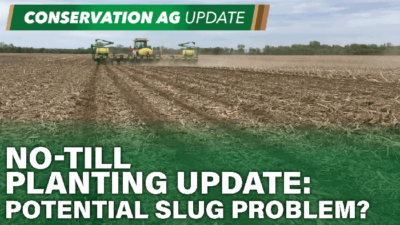Lucas Criswell isn’t afraid to try new things for the benefit of his soils, crops, and ultimately profits.
So when he learned that Penn State University entomologist John Tooker’s work suggested that neonicotinoid seed treatments may have negative effects on beneficial insects, he decided to make a change.
For the past few years, the Lewisburg, Pa., no-tiller has been trying untreated corn and soybeans to help his beneficial insect community. So far, he’s had good success with untreated soybeans. He’s given up some cosmetics, as bean leaf beetle feeding has increased a bit, but it hasn’t affected his yield.
“We’ve been planting soybeans untreated for the last 3 years with no yield disadvantage at all,” he says. “So we’re saving close to $15 an acre in seed treatment costs on soybeans.”
Corn, on the other hand, has been touchier, he says. In 2014, the corn that was untreated yielded the same as his treated corn, but in 2015 it didn’t perform as well. He believes it has more to do with the variety he picked than the fact it was untreated.
“Our hands are tied if we want to buy untreated corn seed — you only have a limited number of hybrids that you can select,” Criswell explains. “We can’t select the best hybrids without a treatment on. There are only a select few they do that with.”
Criswell is going to continue experimenting with different untreated hybrids, not for potential cost savings but to move away from neonicotinoids.
“Some of the work Tooker has done opened my eyes and I’ve taken a stance on it,” he says. “Everybody says seed treatment is cheap insurance, but it’s actually expensive because you’re shooting yourself in the foot by taking out the natural predators, due to the side effects of neonicotinoids.”







Post a comment
Report Abusive Comment